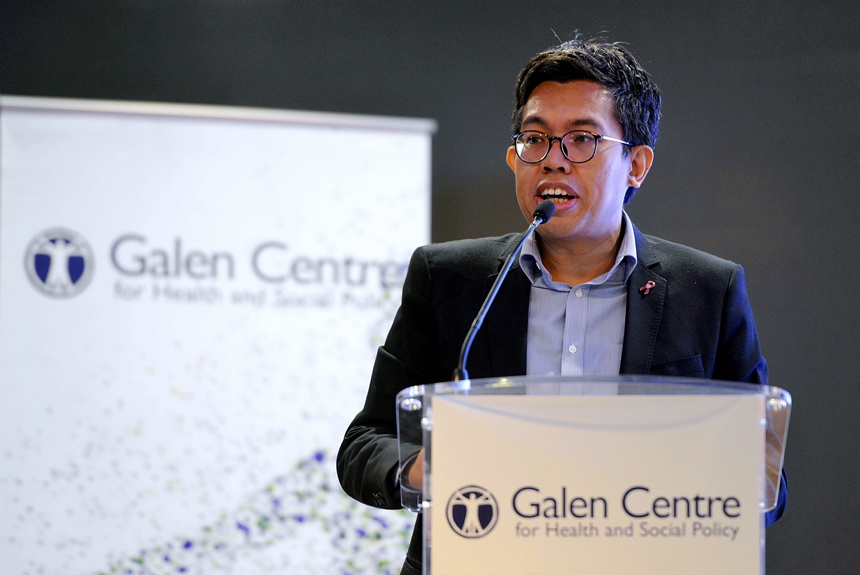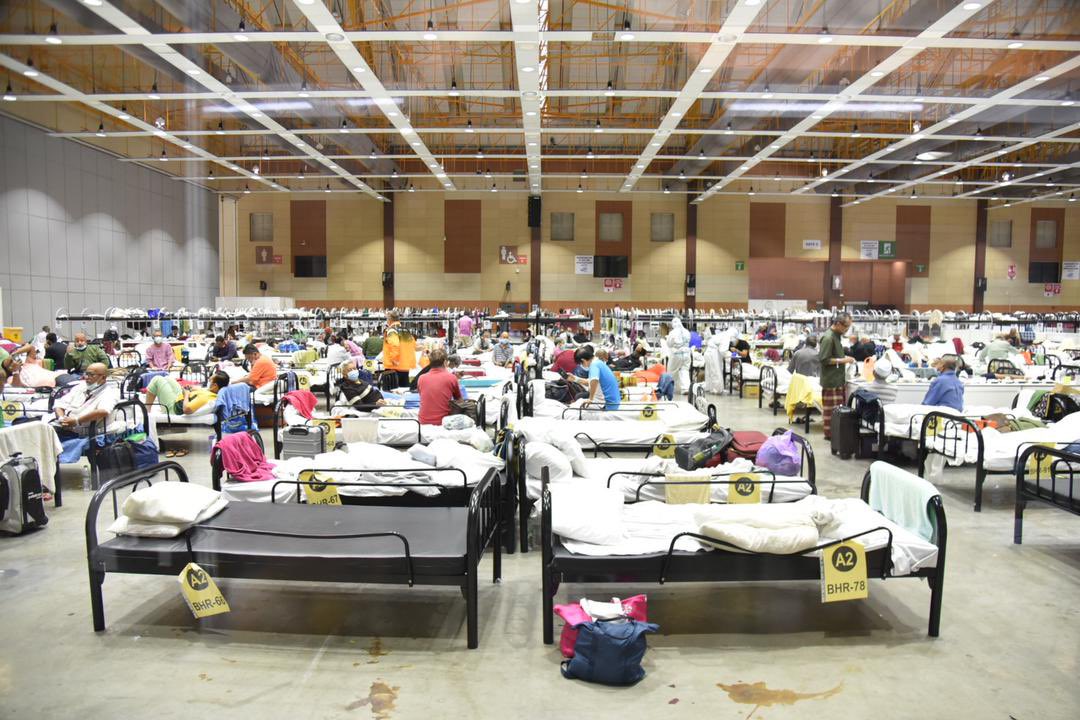KUALA LUMPUR, Oct 13 — The public health care system must be prepared for a resurgence of Covid-19 cases with the resumption of interstate travel, experts said.
Azrul Mohd Khalib, head of the Galen Centre for Health & Social Policy, said that the reopening of state borders will surely result in another spike of coronavirus infections, especially among younger people who are yet to be vaccinated fully.
“Now that there’s going to be this interstate travel, there’s going to be a reduction of all these restrictions. There could be a massive surge in the number of cases that are going to be reported,” Azrul said in a webinar titled “Covid-19: Achieving Herd Immunity and the Way Forward”, organised by Penang Institute on October 7.
“It’s not so much the fact that people are getting infected or breakthrough cases.”
Azrul emphasised that the public health care system, including health care resources, should be ready to accommodate a future surge of Covid-19 cases as the country’s borders reopen.
Prime Minister Ismail Sabri Yaakob allowed the country to reopen state borders starting from October 11, after 90 per cent of the adult population were fully vaccinated. Fully vaccinated adults are permitted to travel across the country without restrictions, as well as adolescents and children irrespective of their vaccination status.
Ismail Sabri also indicated that state borders will not be closed even if there is a surge in coronavirus infections. Daily Covid-19 cases fell from a peak of 24,599 infections on August 26 to 7,276 yesterday. The national positive rate was 4.65 per cent; the World Health Organization recommends a maximum 5 per cent positive rate for at least two weeks before reopening.
“There could be more people who are going to be hospitalised, falling seriously ill and dying as a result of it and that’s going to be a price to be paid. It will happen. This is the thing,” said Azul.
“This announcement, that’s going to be coming in the next couple of days, we thought there will be a resurgence of cases. We saw that in Langkawi just recently with this bubble that they created.”
Senior consultant paediatrician Dr Amar-Singh HSS said that Malaysia should not compare its situation with other countries like the the United Kingdom and the United States that have allowed large social gatherings. Health care systems of Asian countries, he said, are far different from European countries and the US.
“You can’t compare the UK health system to Malaysia. In the UK for months now, almost a year, everybody has had access to two Covid-19 tests a week. We can’t, we have no access like that,” Dr Amar mentioned in the same forum with Azrul.
“That changes the dynamics of who is going to get infected and how much spread you have.”
At the same time, Azrul noted the disparity among school students in access to education for almost the past two years due to the Covid-19 pandemic. Movement restrictions halted in-person learning, as all school students were required to adapt to online learning.
According to Azrul, almost 40 per cent of the school students do not own digital devices that are needed for the purposes of online learning.
Thus, he said school closures for a long period of time will not be a solution to control Covid-19. Rather, the government should think of all possible ways to make schools a safer place.
“So we have to balance. Now with the possibility of infection within the classroom, the issue is are we worried that kids will be infected, or are we concerned that the kids could infect other people,” said Azrul.
“You know that they will be affected. They are okay, they look fine, they’re symptomatic, they recover. But they could be infecting other people like teachers, their grandparents at home or the parents at home, and so forth.
“So there’s a lot of variables that are being discussed right now when it comes to the safety of classrooms but also the safety of the kids themselves and how they interact with the environment.”
“So while we work to make sure that it’s as safe as we can possibly make it, how can we make sure that kids are safe to go back to school?”
Dr Amar, who concurred with Azrul, however cautioned the public that more than one third of new Covid-19 infections in the country involved children below 18 years old.
“If you look at Covid-19, children right now comprise 35 to 40 per cent of all infections, by the way,” said Dr Amar. “If you talk to my paediatric colleagues working in the hospital, they are seeing a lot of very sick children on the ventilator, some small babies.”
CodeBlue recently reported that children aged below 12 years comprised 15.4 per cent of about 1.1 million new Covid-19 cases from August to September, while adolescents aged 12 to 17 formed 7.7 per cent of infections. Together, under-18s comprised 23.1 per cent of Covid-19 cases in the past two months.
Dr Amar once again emphasised that adult vaccination alone is not enough to be in a better position to fight the coronavirus in the country. The government consistently publicises adult vaccination coverage, instead of total population rates. About 66 per cent of Malaysia’s total population has been fully vaccinated to date.
“We must stop looking at adult vaccination rates. Look at total community vaccination rates and look at the whole metrics,” said the paediatrician.
“Deaths in the US are higher than Malaysia per population, but we seem to accept that. But there are people, health care professionals very, very angry with the US government for what’s happening right now. They’re not doing as well as we’d like to think despite opening up and dropping their mask mandate.”
What Is Endemic Covid-19?

Azrul pointed out that an endemic Covid-19 phase is not only about living with the coronavirus, but preparing a strong coping mechanism to accommodate the effects of the disease when it starts to spread widely once the people return to normalcy.
“Dengue is considered as endemic in Malaysia, and continues to infect people and even costs lives. We have basically 361 cases per 100,000 people in Malaysia and it’s an example of an endemic disease,” he said.
“So I wanted us to bear in mind that if we’re talking about Covid-19 coming in endemic, it would look like something that we see today with dengue.”
Azrul said that endemic refers to a situation when the disease is controlled at or below an acceptable level where the health care system is able to cope, treat, and ensure that people get the necessary care if they are affected by the disease.
“So the issue of acceptability is really dependent on the severity of the disease. So you find a situation where there is a higher level of severity, there is no acceptability.”
He emphasised that declaring Covid-19 as endemic is also an acceptance of the presence of the disease in the community even after vaccination.
“But the most important question here is what are we going to do about breakthrough cases. How the breakthrough cases that have occurred are acceptable to us.”
Azrul emphasised that the emergence of new contagious variants should be taken into consideration while the country is embracing an endemic phase for Covid-19. He said that Delta is not the only dominant variant for the coronavirus, as there are high possibilities for new highly transmissible variants to appear.
“So, we are going to have to adapt, and most importantly, I think this is where more investment is needed in public health.
“Our health care system also needs to be adaptable. It needs to be flexible and, most importantly, is able to get the necessary people who are specialised who are able to provide the necessary support for a population that’s going to be facing an endemic Covid-19 future.”








